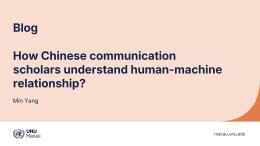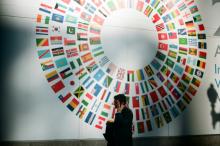UNU-IAS will co-organize ProSPER.Net Sustainability Forum as a joint event with the 2024 Public Plenary of the Sustainable Development Solutions Network Philippines (SDSN PH). Leading up to the 2024 Summit of the Future, the forum will explore the role of universities in advancing multilateral solutions to achieve the 2030 Agenda.
Under the theme “Circular Economy in Higher Education: Our Pact for the Future”, the event will discuss the pivotal role of higher education and multisectoral cooperation in advancing the circular economy as a mindset and a lifestyle. It will feature a plenary talk followed by two panel discussions on successes and challenges in circularity in the Asia-Pacific region.
Participation & Registration
The event will be held online and in-person at Escaler Hall at Ateneo de Manila University in Quezon City, the Philippines. To participate online, please register to receive a Zoom link.
Please note that participants in UNU events may appear in photography, screen captures, videos and/or audio. For further information please refer to Events.
Language
This event will be held in English.
Organizers
The event will be co-organized by Ateneo de Manila University and the Ateneo Institute of Sustainability (AIS) with support from De La Salle University, in partnership with UNU-IAS and ProSPER.Net.
Background
The Promotion of Sustainability in Postgraduate Education and Research Network (ProSPER.Net) is an alliance of 55 higher education institutions in the Asia-Pacific region working to integrate sustainable development into curriculums and research, for which UNU-IAS serves as the secretariat. The work of the network has supported the implementation of the 2030 Agenda and the SDGs through the Global Action Programme (GAP) on Education for Sustainable Development (2015-2019) and the ESD for 2030 framework (2020-2030).


